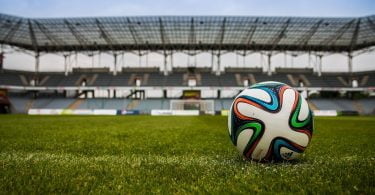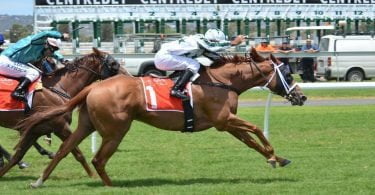‘When the seagulls follow the trawler, it is because they think sardines will be thrown into the sea.’
‘When the seagulls follow the trawler, it is because they think sardines will be thrown into the sea.’
Maybe not even Eric Cantona knew what he meant by this recondite remark.
One thing is for certain though: Eric Cantona was his own man.
Voted as Manchester United’s greatest ever player by Inside United magazine in 2001, the ‘Demon King’ inspired ‘Fergie’s Fledglings’, a homemade tribute act that not only honoured the ‘Busby Babes’, but arguably upstaged the 1956 and ’57 league winners by claiming four out of five domestic titles from 1993 to 1997.
Cantona was the catalyst that helped United pay homage to past achievements, if not eclipsing them. He added two FA Cups to his roll of honour, memorably scoring a late winner against rivals Liverpool in the 1996 final, as well as the Football Writers’ Player of the Year soon afterwards and the 1994 PFA Player of the Year.
Cantona netted 63 league goals in 144 appearances in just a five-year stint at Old Trafford. He is renowned, revered in the Theatre of Dreams, for his flamboyant and innovative playing style, his prescient knowledge of the game, and his collar-turned-up, back-straight, chest-pumped-out, ‘us-against-them’ ideology that Sir Alex Ferguson firmly espoused.
‘He glided into the arena as if he owned the fucking place,’ recalled Roy Keane in his autobiography Keane. In the 1995/96 season, he scored the winning goal in six separate 1-0 victories.
A belligerent thoroughbred both on and off the field, ‘King Eric’ is part of the Cantona progeny that has previously produced other military frontrunners.
His paternal grandfather Joseph immigrated from Sardinia to Marseille, while his mother’s parents were busy fluttering the Estelada flag in the face of Franco on their way to France’s second largest city as well. His maternal grandfather even caught one in the liver during the 1938 Spanish Civil War.
Even their family home, a cave on the hilly south-west Mediterranean coastline, is said to have been a look-out post for Hitler’s troops in the Second World War.
Starting out as a goalkeeper for local side SO Caillolais, he ventured further forward and made his debut for Auxerre in 1983, aged 17, having failed to gain admission into Olympique Marseille’s set up, his desired destination.
After carrying out his national service duties a year later, he returned to Auxerre and impressed national selectors enough to earn his first French cap in 1987 against West Germany.
However, 1987 also marked the year Cantona decided to unveil his volatile disposition. In what would prove to be a more sobering precursor to future incidents, he received a heavy fine for punching his team’s goalkeeper, Bruno Martini, giving him a black eye.
A year later he reoccupied the naughty step for a dangerous tackle on a Nantes player, Michel Der Zakarian. He is suspended for three months.
After 23 goals in 82 appearances, and helping the French U21 side win the 1988 U21 European Championships, his boyhood heroes came calling. Breaking a national record, they secured Cantona’s burgeoning services for £2.3million.
But it is a wretched inaugural season, beset with further disciplinary problems and a lamentable return of only five goals. In January 1989, in a friendly against Torpedo Moscow, he reacts to being substituted in a way only he could express. He kicks the ball into the crowd, rips off his shirt and throws it into the face of Marseille coach Gerard Gili.
Only a few weeks earlier he had made a scurrilous attack on the French national coach Henri Michel’s character by claiming he was a ‘bag of shit’ live on French TV and was debarred from playing for Les Bleus for a year.
He is deported, or some say loaned out, to Bordeaux and then Montpellier, when after a league defeat he throws a football boot at a teammate’s head.
In 1991, now at Nimes, Cantona throws the ball at the referee in a fit of pique over a decision awarded against him. He is banned for a month by the French Football Federation. Cantona stands up, walks over to each committee member, and tells each one of them they are ‘an idiot.’ His ban is increased to two months before Cantona announces his retirement from football, aged 25.
So you could say he was carrying a little baggage when popping over to Sheffield Wednesday for a one-week trial to revive his career on the advice of French national team coach Michel Platini.
Howard Wilkinson, twice caretaker manager of the England national side, imported this sparkling French spirit to Yorkshire and Cantona helps Leeds United win the old Division One title in 1992.
Despite scoring a Community Shield hat-trick against Liverpool, the Frenchman finds himself drifting out of the first-team picture. While Ferguson and Wilkinson were discussing the availability of Dennis Irwin on the phone, in the days before the transfer window, the Scot makes a speculative £1million bid for Cantona, which is accepted in a matter of days.
Despite his meteoric rise to fame in the number seven red jersey, his career is still marred by controversy. He was banned for four European games in 1994 for becoming embroiled in a rumpus with Turkish officials having been sent off against Galatasaray. The same year he was red carded twice in four days and was ejected from a World Cup press box after attempting to punch an official.
‘My best moment? I have a lot of good moments,’ reveals Cantona. ‘But the one I prefer is when I kicked the hooligan.’
Having inured himself to the grim reality of watching on from chez Cantona for eight months after that famous fly-kick on an abusive Crystal Palace fan, who heckled from the touchline and crowed about his dismissal, the ‘King returned’ and scored against the old enemy, Liverpool, in a 2-2 draw.
To this day, in 2011, 14 years since Cantona’s retirement as a 31-year-old, Old Trafford still resounds with glorified chants of ‘ooh-ah Cantona’.
‘Always be yourself,’ concludes Eric Cantona in Cantona: My Story.








